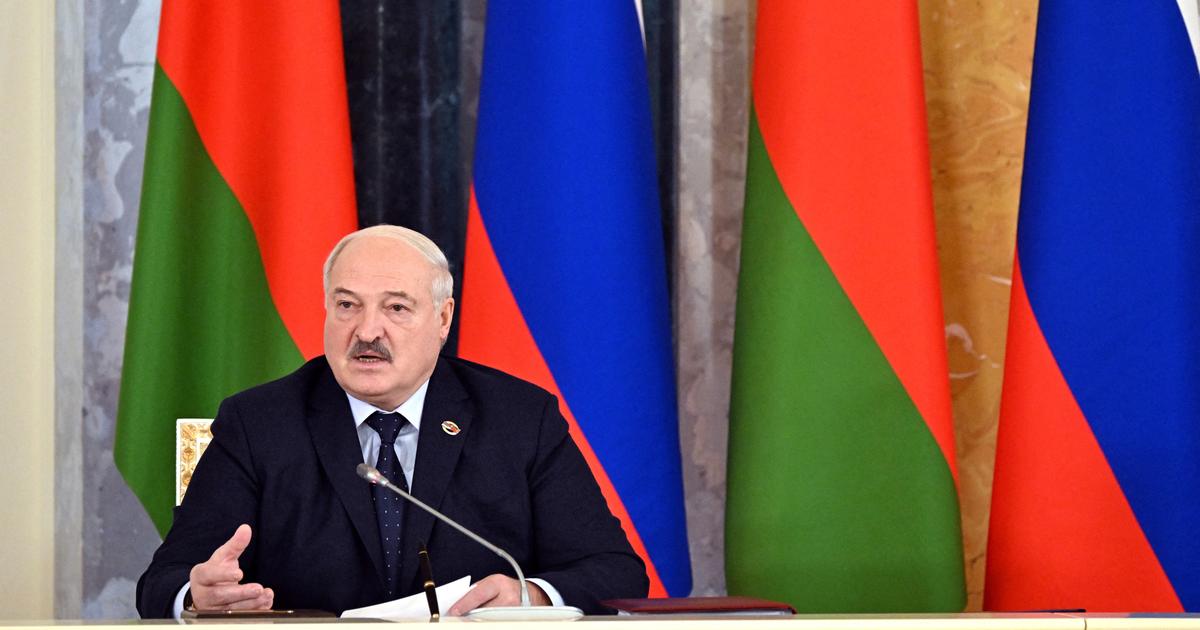The secret service has already been on her trail: Volha Hapeyeva, author from Belarus, is afraid of returning to her country, where opposition members are disappearing and demonstrators are being arrested.
Thanks to a short-term scholarship, she was now accommodated in the Villa Waldberta in Feldafing.
Feldafing - It's hard to say which is the most beautiful: the more than 100 year old Feldafing Villa Waldberta, the stately 2.2 hectare property with a well-tended garden or the view of Lake Starnberg and the Alpine panorama.
The postcard mood offers the greatest possible contrast to the place Volha Hapeyeva talks about - and which worries her without end.
“It's dangerous for me there.
I was always openly critical of the government, ”she says.
The petite 38-year-old, dressed in black except for a light pink T-shirt, is sitting in the shade on the large stone terrace with a glass of water.
As friendly the environment, so stressful are the thoughts of their home.
She is afraid to go back there.
Because it wouldn't be the first time the secret service had targeted them.
Hapeyeva is an award-winning author, her poems have been translated into ten languages.
She comes from Belarus, whose capital Minsk the world is currently looking at.
Because there the election in favor of the dictatorial President Lukashenko was obviously falsified.
Because there opposition groups disappear and demonstrators are arrested.
On September 1, Hapeyeva should have returned to Belarus.
Her one-year literature scholarship as city clerk in Graz had expired.
But she would not have felt safe in her home country.
Because Ulrike Roos from Weßling stood up for her, and because the Munich cultural department acted quickly and unbureaucratically, she was now staying in the Villa Waldberta - at least for two months, maybe three.
The city of Munich has been offering scholarships to international artists and writers there since 1982.
When the head of the house, Dr.
Martin Rohmer, when he heard about Hapeyeva's case, immediately thought of the Pen Association's “Writers in Exile” program. He campaigns for politically persecuted and imprisoned authors all over the world and has also rented apartments in Munich.
“But we still had a room in the Villa Waldberta available,” says Rohmer.
In Belarus the secret service is still called the KGB
Ulrike Roos initiated the “asylum”.
As the chairman of the “Bayern reads” association, she coordinates its projects from Weßling.
On the first weekend in August, Hapeyeva was a guest in the association's poetry workshop in the Villa Stuck in Munich and told Roos about her worries.
The informed Rohmer as well as those responsible for the Munich Literature Archive and the Museum Education Center.
"Everyone helped, the visa was there within just two days," says Roos.
Austria also supported Hapeyeva by adjusting the visa.
The author taught as a linguist at the university in Minsk.
She speaks German well, and switches to English when dealing with complex issues.
“Maybe I'm not important enough either.
But you never know who they are coming to and who they will pick up, ”says Hapeyeva on the villa terrace.
She speaks of the secret service, which in Belarus is still called the KGB almost 30 years after the dissolution of the Soviet Union.
She made the acquaintance of him a few years ago.
“I had to talk to a KGB employee for two hours.
He showed me a log - 'they were here that day, there the next and so on'. "
In addition to her literary work, Hapeyeva is focusing on a second job: she translates on behalf of the Organization for Economic Cooperation and Development (OECD), an association of 37 countries.
Among other things, private letters - when relatives contact the working group for human rights for help in finding relatives in custody.
Hapeyeva: "It's difficult for small publishers to survive"
The 38-year-old is well informed about the current situation in Belarus.
She speaks to her mother on the phone every day.
Friends write to her that non-governmental facilities, cafes and shops will be destroyed.
And that women are arrested simply for wearing certain clothes.
Hapeyeva reports on independent publishing houses that would have to pay immensely high taxes.
"It is difficult for them to survive." Women writers who do not write faithfully are under general suspicion.
"I achieved everything in Belarus that I could achieve there," she says, sounding disappointed.
From outside the country she can achieve more, network artists and show them opportunities.
This is what she is doing these days in the Villa Waldberta, which housed "Displaced Persons" persecuted by the Nazi regime after the Second World War.
When she steps from her desk upstairs to the balcony, almost the entire Lake Starnberg spreads out in front of her.
She does not get in the holiday mood, work calls.
Ulrike Roos and Co. are in the process of organizing readings - including in the Evangelical Academy Tutzing and the villa itself. Interested organizers can contact roosrosen@bayern-liest.de by e-mail.
Volha Hapeyeva does not yet know what will happen in two or three months. The developments in their homeland are too unpredictable for that. The author says with a convincing voice: "I only plan the next day or a week at most."








